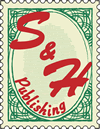Beware the Wolf in Sheep’s Clothes
Publishers often separate their books into different imprints. Amazon itself has over a dozen imprints, each with a specialized focus.
My previous post listed many of the imprints that are owned by the Big Six. Oops, the Big Five. Penguin and Random House are now Penguin Random House. Being published by a subsidiary imprint is not necessarily a bad thing. After all, most of the imprints are still very much a part of traditional publishing—but not all of them. What I am particularly interested in today is the relatively new phenomenon of self-publishing imprints owned by traditional publishers.
Just as you have to look to find the wolf in the picture, the down side of publication through these imprints is not apparent at first glance. Although these imprints tout their connection to their parent companies, according to Writer Beware, the parent company doesn’t even run the operations. Who runs them? Author Solutions—and who owns Author Solutions? Penguin Random House.
The evidence of this is not hard to find. A simple Google search of Author Solutions Imprints yields “Bloomsbury Seeks Deal With Author Solutions” and “Author Solutions Creates Imprint with Hay House” and a Huffington Post article “Author Solutions Creates Self-Publishing Imprints with Hay House, Harlequin and Nelson”.
If you type Author Solutions into the Google search bar, the first item that comes up in the autocomplete is Author Solutions Lawsuit, followed by Author Solutions Reviews. Looking through the reviews gives you an idea of why there is a lawsuit.
Author Solutions' Glass Door profile lists its “leading self-publishing imprints” as AuthorHouse, iUniverse, Palibrio, Trafford Publishing and Xlibris. It neglects to mention the imprints that it operates for traditional publishers.
An article in Forbes, “Penguin and Author Solutions Sued for Deceptive Practices” is well worth reading. The article points out that Author Solutions has “dozens of self-publishing brands.” It also operates Archway, a self-publishing imprint that is actually owned by Simon & Schuster.













